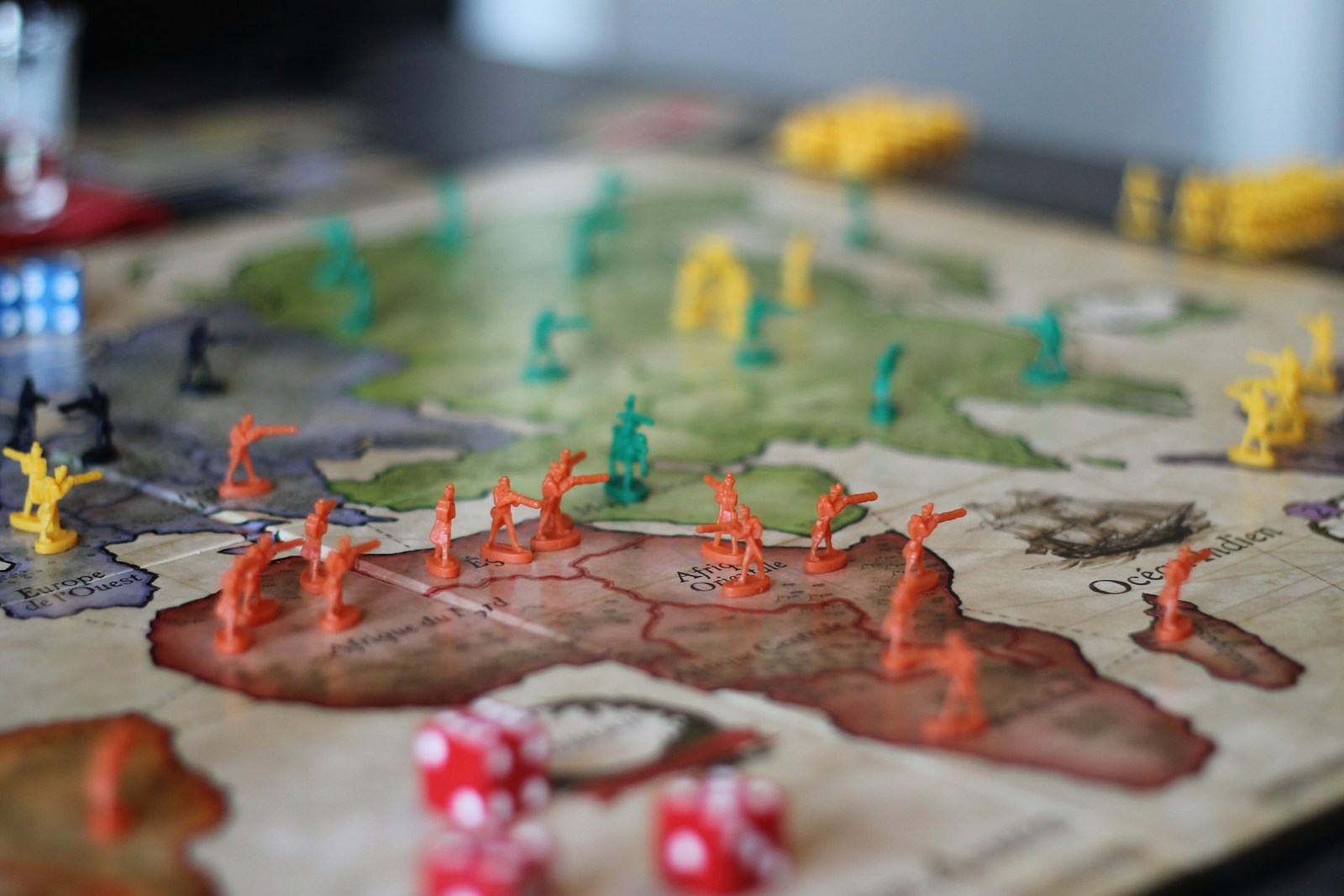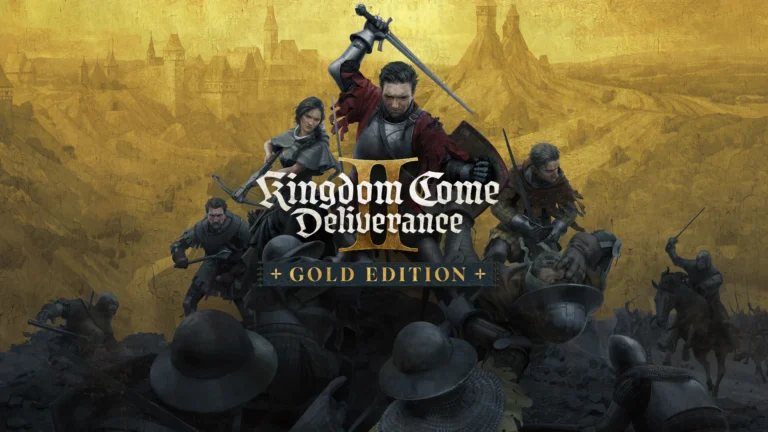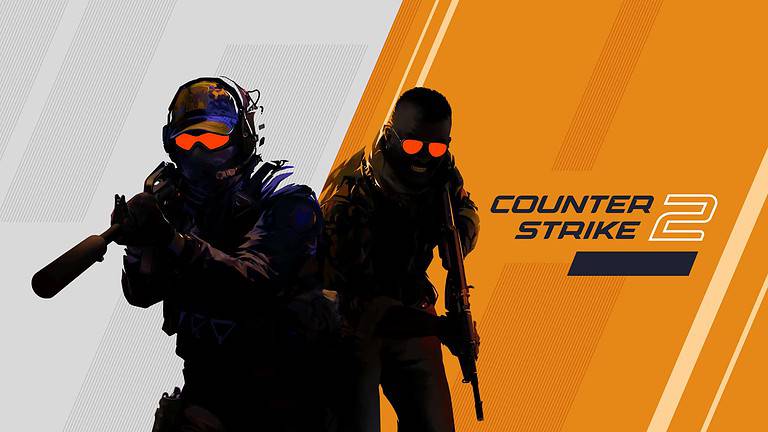
Strategy games have fascinated players for decades, combining deep thinking with engaging gameplay. These games challenge you to plan ahead, manage resources, and outsmart opponents in virtual worlds that range from ancient civilizations to futuristic space empires. Whether turn-based or real-time, strategy games offer mental stimulation that few other genres can match.
Finding the best strategy games of all time can help you discover new favorites that provide hundreds of hours of challenging entertainment. The genre has evolved significantly over the years, with classics like Civilization and StarCraft establishing foundations that newer titles continue to build upon. From grand strategy epics where you control entire nations to focused tactical battles requiring precise unit control, there’s something for every type of strategic thinker.
1: StarCraft
StarCraft stands as a titan in the strategy gaming world. Released in 1998 by Blizzard Entertainment, this real-time strategy game changed everything about how we think of the genre.
When you play StarCraft, you experience perfect balance between three distinct races: Terran, Protoss, and Zerg. Each race offers completely different playstyles and strategies, giving you endless options for victory.
The game’s legacy is virtually unmatched in competitive gaming. Professional leagues, especially in South Korea, have turned StarCraft players into celebrities. The skill ceiling is incredibly high, rewarding your quick thinking and precision.
StarCraft’s campaign delivers a compelling sci-fi story that draws you into its universe. The characters and factions have depth that makes you care about the outcome of this interstellar conflict.
The 1998 original and its expansion Brood War are often considered the best RTS ever made. Many players and critics agree that StarCraft would sit at number one on any list of strategy games.
StarCraft 2 continued this excellence when it launched in 2010. With its three expansions, it offered you even more strategic depth while maintaining the core elements that made the original special. Many fans believe it’s the greatest game of all time when considering gameplay, longevity, and replay value.
The game’s influence extends beyond just entertainment. It helped establish esports and continues to inspire strategy game design to this day.
2: Age of Empires II
Age of Empires II stands as a cornerstone in the strategy gaming world, captivating players since its release in 1999. This medieval masterpiece lets you build empires, manage resources, and command armies across historically inspired campaigns.
The game offers impressive civilization diversity with 10 top options including Franks, Aztecs, and Mongols. Each civilization provides unique units and bonuses that dramatically change your gameplay approach.
You can employ various early-game tactics to overcome opponents. Try rushing strategies like Man-at-Arms rush, archer rush, or scout rush instead of simply building up your economy.
The game’s appeal extends beyond casual play. Many gamers have dedicated themselves to mastering its mechanics, developing skills through practice and study of professional matches.
Age of Empires II maintains a thriving community decades after its initial release. Players often compare it to chess, as both games reward strategic thinking and careful planning.
The series expanded with Age of Empires III, but many enthusiasts prefer AoE II for its balanced gameplay and historical authenticity. You’ll find other strategy fans often play titles like Hearts of Iron 4 and Total War alongside it.
With its Definitive Edition release, the game continues to attract new players while satisfying veterans with improved graphics and additional content.
3: Civilization IV
Civilization IV stands as one of the greatest strategy games ever created. TIME magazine even named it the 11th Best Game of All Time, calling it “arguably the greatest strategy game ever made.”
When you start playing Civ IV, you’re in control of an ancient tribe back in 4000 BC. You guide these stone age hunter-gatherers through thousands of years of development and progress. The game’s depth is remarkable without becoming overwhelming.
The turn-based grand strategy design gives you time to think through each move carefully. You can build cities, research technologies, and engage with other civilizations through diplomacy or warfare depending on your preferred play style.
What truly sets Civilization IV apart is its perfect balance. The game mechanics work together seamlessly, creating a challenging yet accessible experience that keeps you coming back for “just one more turn.”
Sid Meier’s masterpiece features multiple victory conditions, allowing you to win through military conquest, cultural dominance, scientific achievement, or diplomatic influence. This variety ensures that no two games ever feel exactly the same.
The memorable soundtrack enhances the experience, with the Grammy-winning “Baba Yetu” opening theme setting the perfect tone for your civilization’s journey. You’ll find yourself humming it long after you’ve finished playing.
Whether you’re new to strategy games or a veteran of the genre, Civilization IV delivers an experience that remains captivating and rewarding even years after its release.
4: Rome: Total War
Rome: Total War stands as one of the most influential strategy games ever created. Released in 2004, this game revolutionized the historical strategy genre with its blend of turn-based campaign gameplay and real-time tactical battles.
You’ll find yourself commanding vast Roman armies across an impressively detailed ancient world map. The game’s intuitive interface makes controlling thousands of troops feel natural, even if you’re new to strategy games.
What sets Rome: Total War apart is its incredible depth without overwhelming complexity. You can dive into diplomatic relations, manage your economy, or focus entirely on military conquest. This flexibility makes it the best game ever created according to many dedicated fans.
The historical authenticity adds another layer of appeal. From the Triarii spear formations to the devastating charges of Carthaginian war elephants, the attention to detail is remarkable.
Critics agree with the game’s excellence, as it earned a 92 rating when released. This makes it the highest-rated strategy game of 2004.
The game’s longevity speaks to its quality. Twenty years after release, players still enjoy Rome: Total War, with many considering it their favorite strategy game of all time.
For newcomers to the Total War series, this installment serves as an excellent starting point. You’ll quickly understand why it’s often referred to as the GTA 3 of the Total War series – a defining title that set the standard for everything that followed.
5: Command & Conquer: Red Alert
Command & Conquer: Red Alert stands as one of the most influential strategy games ever created. Released in 1996, this alternate history RTS captivated players with its unique premise of a time-traveling Albert Einstein who eliminates Hitler, leading to a massive war between the Allies and Soviet Union.
The game perfected the formula that made the original Command & Conquer successful while adding its own distinct personality. You get to choose between two completely different factions with unique units, structures, and play styles.
Red Alert’s fast-paced gameplay keeps you constantly engaged. The resource management system is straightforward enough for newcomers but offers enough depth for strategy veterans.
The iconic FMV cutscenes deserve special mention. These live-action sequences featuring actors chewing scenery have become legendary in gaming culture.
What makes Red Alert truly special is how it balances serious military strategy with campy humor. The game never takes itself too seriously, giving you a refreshing experience compared to other war games of its era.
Many fans consider Red Alert the height of the Command & Conquer series, refining the gameplay to near perfection. The sequel Red Alert 2 expanded on this foundation, but the original established the winning formula.
When you play Red Alert today, you’ll find its core gameplay still holds up remarkably well. The intuitive controls, balanced factions, and engaging missions continue to provide an excellent strategy experience decades later.
6: XCOM: Enemy Unknown
XCOM: Enemy Unknown stands as a beautifully crafted classic in the strategy genre. Released in 2012, this game masterfully blends turn-based tactics with base management and resource allocation.
When you play XCOM, you’re tasked with defending Earth from alien invasion. You’ll command a squad of soldiers, each with unique abilities that develop as they survive missions. The permanent death feature means losing veteran soldiers hurts both tactically and emotionally.
The game excels by creating tension in every decision. Do you take the risky shot with a 65% chance to hit? Or move to safer cover and potentially allow the aliens another turn? These choices matter.
Base management adds another layer of strategy. You’ll need to decide which facilities to build, technologies to research, and which countries to protect. Resources are limited, and you can’t save everyone.
XCOM was recognized as Strategy Game of the Year 2012, cementing its place in gaming history. Many fans still consider it slightly superior to its sequel, XCOM 2.
The game offers addictive and satisfying gameplay with an engaging campaign. Its influence is evident in how it regularly appears in lists of favorite strategy games of all time.
7: Total War: Three Kingdoms
Total War: Three Kingdoms stands as one of the most refined strategy games in Creative Assembly’s long-running series. Released in 2019, it brings to life the turbulent period of ancient China with stunning detail and complexity.
You’ll find the diplomatic systems particularly impressive. The game has been praised as the best Total War for its amazing diplomacy options, espionage mechanics, and court management systems.
The campaign blends historical events with character-driven storytelling. Each warlord has unique abilities and play styles, giving you different strategic approaches with each playthrough.
Combat remains tactical and visually impressive. Your battles unfold across varied Chinese landscapes, with unit formations and terrain advantages playing crucial roles in victory.
Many consider Three Kingdoms the best game the series has produced in a decade. It successfully balances strategic depth with accessibility, making it appealing whether you’re new to Total War or a veteran.
Army composition matters tremendously in this installment. You might find success with six archers and six spearmen in your early formations, adjusting as you progress through campaigns.
The game maintains strategic pressure throughout, which sets it apart from earlier titles. Unlike some strategy games that become predictable, Three Kingdoms keeps diplomatic and military tension high from start to finish.
8: Europa Universalis IV
Europa Universalis IV stands as one of the most intricate strategy games ever created. Many fans consider it the best strategy game of all time, praising its depth and historical accuracy.
When you play EU4, you’ll immerse yourself in world history spanning from 1444 to the early 19th century. The game puts you in control of a nation during this pivotal era of exploration, colonization, and empire-building.
What sets EU4 apart is its impressive attention to detail. It’s widely regarded as the most detailed and complex grand strategy game with a historical basis focusing on Europe and the rest of the world.
The gameplay hooks you with its addictive quality. Some players report logging hundreds of hours, far exceeding time spent on other strategy titles. One player noted reaching 500 hours while still going strong.
Paradox Development Studios has created something special with EU4. The game offers a comprehensive and all-encompassing experience that continues to attract strategy enthusiasts more than a decade after its initial release.
You’ll find EU4’s learning curve steep but rewarding. The game’s depth means you’ll constantly discover new strategies and approaches even after many playthroughs.
With its continuous updates and expansions, Europa Universalis IV remains relevant and engaging years after release, cementing its place among strategy gaming royalty.
9: Crusader Kings III
Crusader Kings III stands as one of the most remarkable strategy games you’ll ever encounter. It brilliantly blends grand strategy with role-playing elements in a medieval setting like no other game does.
Unlike traditional strategy games, you don’t control a nation or empire. Instead, you play as a dynasty, managing your bloodline through generations of rulers with distinct personalities and traits.
The game’s character-driven approach makes it uniquely engaging. Your ruler might be a brilliant diplomat, a scheming villain, or a pious leader – each offering different strategies to expand your influence and power.
The intricate web of relationships forms the core gameplay. You’ll arrange marriages for political advantage, plot against rivals, and handle family disputes that can spiral into full-blown civil wars.
Many players consider Crusader Kings III to be the pinnacle of Paradox Interactive’s strategy lineup. Its depth and replayability are unmatched, with each playthrough telling a unique story.
The game’s learning curve might seem steep at first, but the satisfaction of successfully navigating medieval politics makes every moment worthwhile.
PC Gamer describes it as “simply the best strategy game around” – a statement many strategy enthusiasts agree with. The game continues to receive updates and expansions, adding even more depth to an already rich experience.
Your decisions echo through generations, creating emergent storytelling that few other strategy games can match. This makes Crusader Kings III not just a game you play, but stories you help create.
10: Warcraft III: Reign of Chaos
Warcraft III: Reign of Chaos stands as one of the greatest RTS games of all time. Released by Blizzard Entertainment in 2002, it revolutionized the strategy genre with its perfect blend of traditional RTS elements and role-playing features.
The game introduces hero units that level up during battles, adding a layer of depth unseen in previous strategy titles. You can customize these powerful characters with items and abilities, making each playthrough feel unique.
What sets Warcraft III apart is its compelling narrative campaign. You follow four distinct factions – Humans, Orcs, Night Elves, and Undead – each with their own storylines that eventually intertwine into an epic tale of conflict and sacrifice.
The game excels in balanced gameplay. Each faction has unique units and structures, yet maintains competitive equilibrium that strategy fans appreciate. This balance made it perfect for competitive play.
Warcraft III’s legacy extends beyond its main campaign. The custom game scene spawned entire new genres, including tower defense games and MOBAs like Dota, which would later inspire League of Legends.
The distinctive art style combines dark fantasy with cartoonish elements that remain visually appealing even today. Coupled with memorable music and excellent voice acting, the atmosphere pulls you deep into its world.
Few strategy games have influenced the gaming landscape like Warcraft III has. Its innovations continue to inspire developers, cementing its place as a timeless classic in the strategy genre.
Historical Evolution of Strategy Games
Strategy games have deep historical roots spanning thousands of years, evolving from ancient board games to complex digital experiences. Their development reflects human fascination with strategic thinking and competition.
Origins and Early Developments
Strategy gaming began long before computers existed. Games like Senet found in Egyptian tombs date back over 5,000 years, making strategic thinking one of gaming’s oldest elements. These ancient games taught planning and tactical decision-making.
Chess emerged in India around the 6th century and spread globally, becoming the most recognized strategy game in history. Its military-themed pieces and complex rule set established patterns still used in modern strategy games.
The 20th century brought board games like Risk that simulated global conquest and warfare. These tabletop experiences laid important groundwork for what would later become digital strategy games.
Early computer strategy titles appeared in the 1970s and 1980s, though limited by technology. Games like Empire and Eastern Front (1941) pioneered strategic gameplay within technological constraints of their era.
Impact of Technology on Strategy Games
The 1990s revolutionized strategy gaming with titles that defined the genre. Games like StarCraft, Command & Conquer, and Civilization topped popularity charts, establishing foundations for modern strategy games. These games introduced real-time decision making, resource management, and complex AI opponents.
Graphics improvements allowed for more detailed battlefields and unit representation. You could now see your armies in greater detail as they conquered territories or constructed bases.
The internet transformed strategy games through multiplayer capabilities. You could test your skills against human opponents worldwide, creating competitive communities and eventually esports.
Mobile technology has recently made strategy games more accessible. You can now enjoy complex strategic challenges on smartphones and tablets, bringing the genre to new audiences beyond traditional gaming platforms.
Key Elements of Successful Strategy Games
Great strategy games share common features that keep players engaged for hours. These elements create deep, rewarding experiences that challenge your mind while remaining accessible and fair.
Game Mechanics and Rules
The foundation of any great strategy game lies in its core gameplay mechanics. Your interaction with the game should feel intuitive yet offer depth for mastery. The best strategy titles provide clear objectives while allowing multiple paths to victory.
You need options to adapt your strategy. Different modes, difficulty levels, map sizes, and victory conditions keep gameplay fresh and challenging. Game speed options let you control the pace of play.
Environmental factors add tactical depth. Hills, forests, and terrain features should affect gameplay meaningfully:
- Woods and hills to conceal movement
- High ground for combat bonuses
- Swamps to reduce and channel movement
A well-designed interface matters too. You shouldn’t struggle with controls when executing complex strategies.
Balance and Fairness
Balance ensures no single strategy dominates gameplay. When you choose different factions, units, or approaches, each should have distinct advantages and disadvantages.
Top strategy games like StarCraft, Civilization, and Age of Empires maintain careful balance between opposing forces. This creates a “rock-paper-scissors” dynamic where counters exist for every powerful option.
AI opponents should provide appropriate challenge without cheating. You should feel the computer earned its victories through smart play, not unfair advantages.
Multiplayer balance is especially crucial. When facing human opponents, you need confidence that skill—not imbalanced mechanics—determines the winner.
Randomness should influence but never control outcomes. Some unpredictability keeps games interesting, but your strategic decisions must matter more than luck.
Frequently Asked Questions
Strategy games have captivated players across platforms for decades. From PC classics to mobile experiences, the genre offers deep tactical challenges and satisfying gameplay.
Which PC strategy games are considered classics?
StarCraft stands as perhaps the most influential real-time strategy game ever made. Its perfect faction balance and competitive depth have kept it relevant for over two decades.
Command & Conquer, particularly the Red Alert series, defined the RTS genre for many players growing up in the 1990s. Its blend of alternative history, campy cutscenes, and accessible gameplay created a lasting legacy.
Civilization revolutionized turn-based strategy, with Civilization IV often cited as the pinnacle of the series. Few games can match its grand scope of human history and “one more turn” addictive quality.
What are the top strategy board games ever created?
Chess remains the quintessential strategy board game with its perfect information gameplay and centuries of strategic development. Its influence extends to virtually every strategy game that followed.
Settlers of Catan revolutionized modern board gaming with its resource management and negotiation mechanics. It serves as many players’ introduction to deeper strategic tabletop experiences.
Twilight Imperium offers perhaps the most epic board game experience, combining diplomacy, warfare, and economic management in a day-long space opera that rewards careful planning.
Can playing strategy games enhance cognitive skills?
Research suggests strategy games can improve problem-solving abilities and critical thinking. When you make complex decisions in these games, you’re exercising the same mental muscles used in real-world scenarios.
Pattern recognition improves as you learn to identify strategic situations across different games. Your brain becomes better at spotting opportunities and threats, a skill transferable to many aspects of life.
Planning and resource management skills develop naturally as you balance short-term tactics with long-term strategies. This helps with everything from personal finance to project management.
What is the greatest real-time strategy game in history?
StarCraft: Brood War is widely considered the greatest RTS ever made. Its perfect balance between Terrans, Protoss, and Zerg created a competitive scene that remains active today.
Age of Empires II combines historical authenticity with exceptional gameplay. Its Definitive Edition continues to receive updates and tournaments decades after release, proving its enduring quality.
Warcraft III revolutionized RTS with hero units and deep storytelling. It also spawned the MOBA genre through its custom maps, showing its influential design.
Which strategy games on Android have the deepest gameplay?
XCOM: Enemy Within offers a complete port of the tactical masterpiece. You’ll command squads against alien threats with permadeath adding genuine tension to each mission.
Battle for Wesnoth delivers open-source turn-based tactical gameplay with impressive depth. Its fantasy setting and varied factions provide hundreds of hours of strategic challenges.
Polytopia simplifies 4X strategy into a mobile-friendly format without sacrificing depth. Its quick games and distinctive art style make complex strategy accessible anywhere.
Are there any strategy games on PS5 that are highly recommended?
Civilization VI translates the PC classic to consoles remarkably well. The control scheme works intuitively with controllers, letting you build your empire across history with ease.
XCOM 2 Collection delivers one of gaming’s most intense tactical experiences on PS5. The alien occupation setting creates high-stakes missions where every decision matters.
Crusader Kings III brings grand strategy to consoles for the first time. You’ll navigate medieval politics, arranged marriages, and dynastic struggles across generations with surprising depth.






